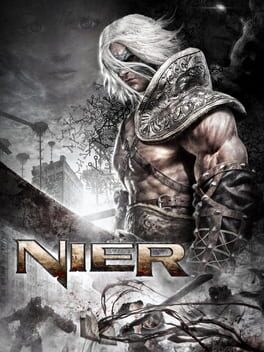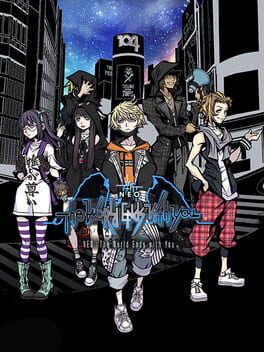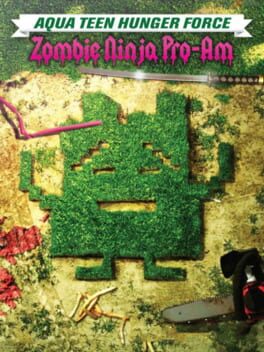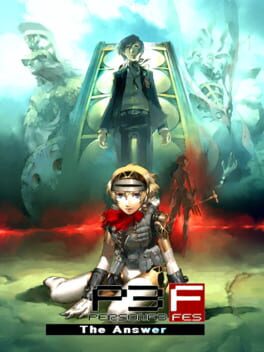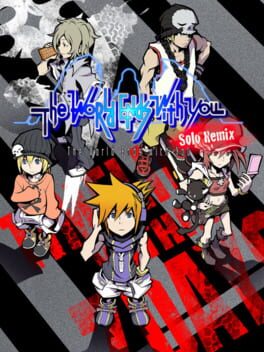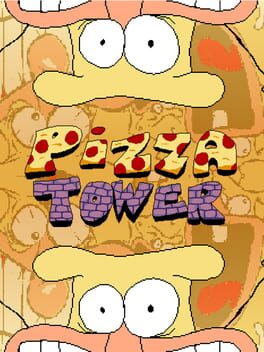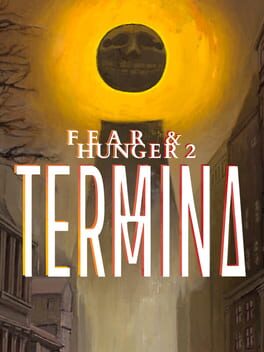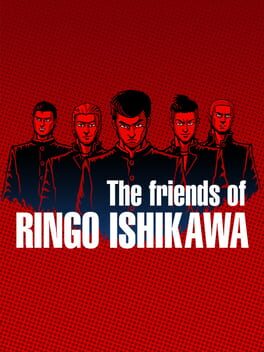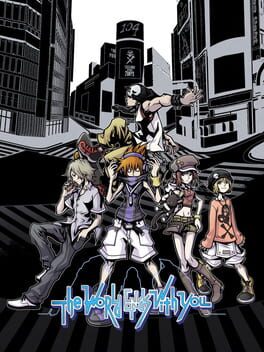ConeCvltist
Composer/Artist/Indie Dev (See the games I've worked on here!)
Writer for BumpCombat.net
"The eleventh born son of this world shoots at the soul of man with guns of silver."
PFP: @moshimoshibe
----RATINGS----
0.5★ - 1.5★: Bad Zone
2.0★ - 3.0★: Mid Zone
3.5★ - 4.5★: Good Zone
5.0★: Outstanding!
Badges

GOTY '23
Participated in the 2023 Game of the Year Event

Busy Day
Journaled 5+ games in a single day

Early Access
Submitted feedback for a beta feature

Pinged
Mentioned by another user

GOTY '22
Participated in the 2022 Game of the Year Event

Gamer
Played 250+ games

Treasured
Gained 750+ total review likes

Full-Time
Journaled games once a day for a month straight

Listed
Created 10+ public lists

Organized
Created a list folder with 5+ lists

3 Years of Service
Being part of the Backloggd community for 3 years

Gone Gold
Received 5+ likes on a review while featured on the front page

Roadtrip
Voted for at least 3 features on the roadmap

Best Friends
Become mutual friends with at least 3 others

Donor
Liked 50+ reviews / lists

Shreked
Found the secret ogre page

GOTY '21
Participated in the 2021 Game of the Year Event

Famous
Gained 100+ followers

Adored
Gained 300+ total review likes

Loved
Gained 100+ total review likes

Trend Setter
Gained 50+ followers

On Schedule
Journaled games once a day for a week straight

Well Written
Gained 10+ likes on a single review

Popular
Gained 15+ followers

Liked
Gained 10+ total review likes

Noticed
Gained 3+ followers

N00b
Played 100+ games
Favorite Games
384
Total Games Played
016
Played in 2024
932
Games Backloggd
Recently Played See More
Recently Reviewed See More
It's oft said as a maxim, "To steal from one is plagiarism, to steal from many is research". A common thread amongst many retro throwback indie games you see come out is a slavish devotion to a single game, or some dubious rose-tinted era that never really existed. Indie devs who's only real creative aspirations are "What if I made Chrono Trigger again?". Fear & Hunger 2: Termina at a glance could easily be thrown under this umbrella as well: it's plot is a whole-sale reference to Majora's Mask (if you couldn't already tell from the title alone). There's an enemy in-game that's just Art the Clown from Terrifier. Silent Hill, old internet urban legends, H. P. Lovecraft, Hellraiser, the list goes on and on. Termina could easily be filed under this umbrella of unfocused & derivative pop-culture worshipping games, but despite being outwardly familiar, Termina's greatest strength is it's sense of mystique and magic; it's ability to feel like a truly unknowable black box of psychosexual Eurojank horror.
Termina uses its myriad base of familiar inspirations and influences as a jumping-off point, a way to set your expectations before it pulls the wool over your eyes and shows you what it truly wants to accomplish. With a cast of 14 unique characters (8 of which are playable, each with unique ways they affect the core gameplay loop) and a 3 day time limit, there's a sense of wonder as you try (and die) again over and over, with each playable character & NPC having some kind of obscure interaction with other characters or the world that you can stumble upon multiple hours into your 5th or 6th playthrough still. It's structure of a large and relatively static world map, coupled with a downright sadistic and unfair difficulty almost lends Termina the air of a masocore game a la I Want to Be the Guy or Kaizo Mario. It's about venturing head-first into a challenge and getting your ass handed to you in a way so insane and out of left-field you almost laugh at the sheer absurdity of it if you weren't so pissed about your last save being an hour and a half ago.
Saving your game at a bed advances time and causes characters to move around, potentially die, and limit your ability to explore, yet is also the only reliable way to access the game's leveling mechanic to improve your character. Powerful enemies can randomly show up around town and deliver total party wipeouts. While enemy positions and item boxes are static in each playthrough, their appearances and contents are otherwise completely random and up to chance. This risk and reward throughline forces a different approach each playthrough with enough variety that it always feels like you're never truly in control of the situation, no matter how many shotgun shells your carrying around or how many people you have in your party, and it manages to keep up the incredibly tense horror even after you've been desensitized to the horrific monster designs & nightmare scenarios with the constant looming threat of losing progress.
Termina is a dubiously tactful psychosexual nightmare of a game that I can't get enough of. While it will no doubt be picked apart down to its very cogs in the future, I'm enamored by it's mystical black box nature and I hope the future updates this game is planned to recieve flesh it out even more. I can say with confidence that Termina is a cult classic in the making, and a bold new entry into the RPG Maker Horror canon.
My own high school wasn't great looking back on it. Violence & abuse were common occurrences, drug use & sex in the hallways was an unspoken fact of life, and basically everyone was a minority of some kind from a low-income background. Lots of people I knew came from broken homes, or were working part-time to put food on the table, or were otherwise struggling with something no kid should've been dealing with at that age, the kind of things that can make studying for your history exam seem like small potatoes. It's a structural issue decades in the making that leads to people getting trapped in places like these, and unfortunately not everyone is able to escape it. Schoolyard fights that escalated into shootings. Football players who graduate with bright prospects only to then get arrested for murder. Kids akin to Ringo's gang members like Masaru or Goro, who have zero sights beyond the now & fully believe they'll be set for a life of petty crime after graduation. The short-sighted violent mindsets people box themselves into that end up spelling their own ends because they can't escape the circumstances that put them there.
I vividly remember hanging out in the parking lot after school one day, and I saw a kid reading a book on the hood of his car. His friends came up to him and immediately dogged on him for this and the supposed weakness such a hobby would project on your image, and he sheepishly put it away in his bag before he left with his friends. It's a small event in hindsight, but it was called back to my mind crystal clear during a scene where Ringo's friends rip into their fellow member Goro for his new vested interest in acting.
Ringo, for all his virtues, for all the books you can make him read, for all the training he can undergo, for all the studying & knowledge you can try to impart on him, still fully believes that his gang of schoolyard bullies is going to last forever, despite it being made rapidly apparent that everyone is starting to move on and find their own callings. Ringo still gets into casual street fights & latches onto his childish notions of schoolyard ethics, of "official challenges" and "rules," even as things spiral out of anyone's control & everyone starts to get in too deep. Much like some of my peers that I saw in my youth, he's a bright soul with potential and promise that is being squandered by his own adherence to violence and unhealthy group mentalities & expectations, and the simple fact is that as the days go by, everyone around him is starting to realize that they need to grow up and move past it all.
Everyone except him.
To truly understand another person is a fundamentally impossible task. No matter how much we can claim to know about other people, we will never be able to truly know everything about a person. And yet, despite the apparent Sisyphean nature of reaching out to people, to remain alone is to deny yourself the true scope of the human experience. To give up on others is to give up on yourself, and consequently, the world as a whole. Despite how much it can hurt to lay your heart bare to other people, we're in this shit together, ain't we? It's only through taking the risk to open up that we can expand our world beyond the boundaries of ourselves, and what better way to represent the difficulty of learning to open up to and understand people than with the most action-per-minute ADHD-ass battle system to grace RPGs?
The World Ends With You is a master-class of the mostly now-extinct maximalist game design philosophy that pervaded the 7th generation of gaming, being a game that makes full use of every single aspect of the DS' unique hardware. Control two characters at once in combat, one with the d-pad/face buttons, another with the touch screen. Match cards, do arithmetic & deal poker hands on the top screen while you tap, touch, swipe, scratch, even scream to attack and cast spells on the bottom screen. It's so gripping and unique that it's virtually impossible to emulate the sheer frenetic energy of the gameplay (which is why, to my knowledge, future ports don't even try to replicate it); a true dedication to hardware & design that makes the unfortunate stranding of this game on the DS almost impressive in it's sheer audacity & commitment to putting every single bit of hardware to use. In picking up TWEWY to idly pass the time during my 40 minute bus commutes to my college campus, I had unknowingly gotten myself sucked into one of the most innovative action RPGs to grace the system.
This frenetic & captivating gameplay is complimented perfectly by TWEWY's period-perfect commitment to the late 2000's urban youth's sense of charm & style. Fighting to a playlist of dozens of unique J-Pop/J-Rock/J-Rap battle themes; hitting the town to buy high-rise skinny jeans, browsing goth fashion boutiques for Scene Kid arm-warmers and knee-high boots to craft a fashion-disaster of a character build; keeping a pulse on the modern trends of the youth culture epicenter that is the Shibuya scramble crossing to maximize your damage output. The under & over-current of youth culture, fashion trends & artistry runs strong through TWEWY's veins, in every aspect of its UI & gameplay systems.
In fitting with this focus on youth culture, the story tackles the most pressing personal issue of every generation before, during and after ours: opening up to others. TWEWY's protagonist Neku is a thorny individual who is initially down-right unlikable, uncooperative & borderline malicious in his actions towards his partner & those just trying to help him survive. Put as on-the-nose as possible, his world starts & ends with him, and no one else. But by being forced into the Reaper's life-or-death game, attached by the hip to a wide variety of party members & crazy characters, he's forced to rehabilitate his misanthropic worldview & opinions of other people, and by the end of his adventure, he's dedicated himself to his friends & mankind as a whole. Understanding other people is a difficult & terrifying prospect, but it's only by clashing with others and their values & beliefs, and by making an attempt to help & know those around us that we truly live. The world doesn't just end with you, it begins with you, and it's horizons stretch as far as you are willing to push them. TWEWY is a game that leaves you with a single thought after it's all over:
It's a wonderful world, isn't it?

